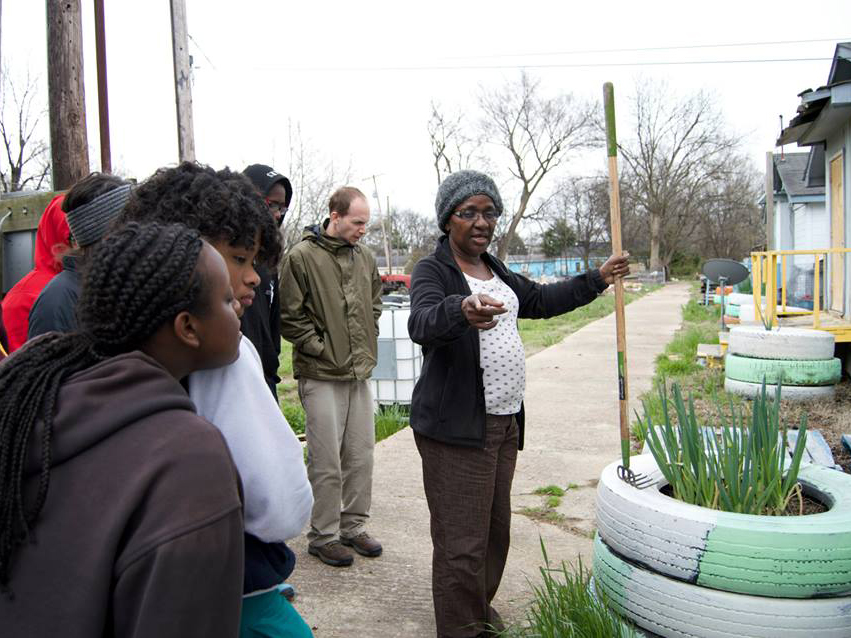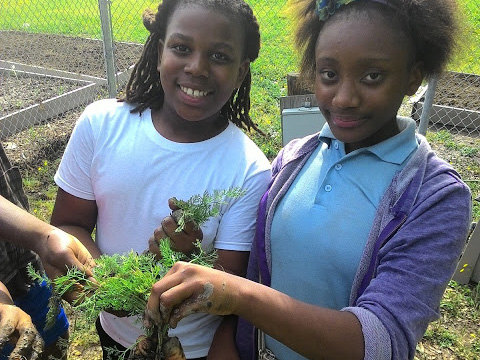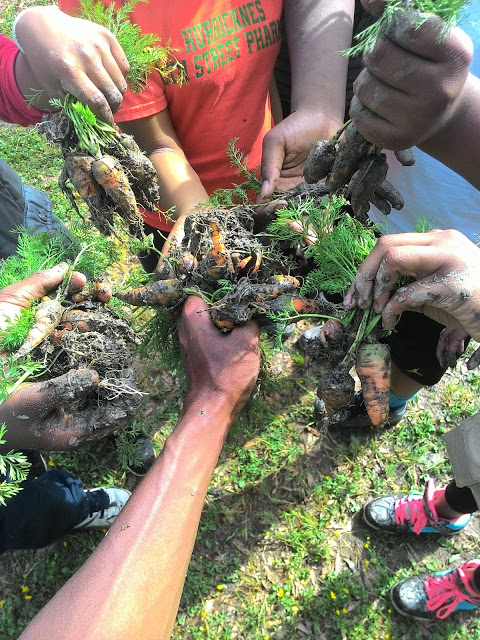Champion of rural health promotes farming fresh veggies, fruits

Dorothy Grady Scarbrough is a planter of seeds.
Some, she hand-places in the Delta soil, hoping her enthusiasm for their promise of fresh fruits and veggies catches on in communities where dinner might be cookies and a Coke.
Others, she delivers to children who plant Swiss chard, kale and spinach in their school gardens - not just to produce healthy food, but to use the growing process as a springboard for lessons in history, math and science.
Her mission is to convince backyard gardeners and local farmers to grow nutritionally sound and sustainable crops, and to get that food to members of the community whose diets contribute to high blood pressure, obesity, heart disease and other health issues rampant in the region.

Scarbrough, a registered nurse, is this year's Rural Health Champion, an honor bestowed by the Myrlie Evers-Williams Institute for the Elimination of Health Disparities at the University of Mississippi Medical Center. The award goes to “an unsung hero who makes a notable contribution to health, health care, or a health-care delivery system in a rural Mississippi community,” said Erica Collins-Young, the Institute's recruitment and retention coordinator.
The Shelby resident and mother of five is being honored at 10:30 a.m. Friday during a ceremony at Shelby City Hall. She was among more than a dozen people nominated.
This year's competition focused on eliminating food insecurity, Collins-Young said. “Mrs. Scarbrough is an ideal recipient whose commitment to rural health, food insecurity, community organizing and community outreach deserves to be honored,” she said.
Scarbrough's 2,000-population community is no stranger to hunger. It's in a food desert - a geographic area where affordable, nutritious food is difficult to obtain, especially by those with no reliable transportation.

Scarbrough, however, is making a statewide difference when it comes to increasing the availability of nutritious fresh produce for schools and residents of the Delta. In 1997, she co-founded MEGA, Mississippians Engaged in Greener Agriculture, at a time when she sought answers to why people around her stayed sick.
“I know the value of food and how it ties into correcting certain deficiencies in the body,” Scarbrough said. “We're looking at food as our medicine. It is our medicine. It has everything we need.”
“She realized that by growing small backyard gardens, residents would not only save money by producing their own fruits and vegetables, but they could also combat the high level of diet-related illnesses in the region by changing their eating habits,” Barbara Thompson, who nominated her friend for Rural Health Champion, wrote to the selection committee.
Scarbrough serves as co-leader with fellow enthusiast Sunny Baker of Mississippi's Farm to School Network that helps local farmers and schools connect kids to healthy food. Their resources include FoodCorps, a part of the federal AmeriCorps volunteer initiative. FoodCorps workers connect kids to healthy foods and make sure they know a healthy food when they see one.
MEGA has grown to include a farmer's market and several acres of active farming. “We run a food pantry out of Shelby on Tuesday and Friday, and we serve over 350 clients on average every month,” Scarbrough said. “We get food donated by the Mississippi Food Network and Walmart.”
Food lessons are reinforced through Monday night cooking classes, she said. “My day is sometimes 15 hours or greater because of all the after-hours things we do,” she said.
Especially precious to her is the Farm to School Network, which gives grants to school districts to create gardens. Many are in rural elementary and middle schools, although participants include several Jackson high schools.
“We've got about 40 going this year, and since May we've done 25,” Scarbrough said. She works with district food service directors and school principals and administrators to plan gardens. “The children do the planting, but the teachers are involved. They use gardening in their core classes - things like nutrition components and measurements.”

Sonya DeBose, principal of Shelby Middle School, said Scarbrough reached out to her at the beginning of last school year, offering to educate students on healthy food choices and to provide materials and people resources to get a garden started.
Not only did Scarbrough do that, but she met with parents to help engage them in the effort, DeBose said. Scarbrough also facilitated the assignment of a FoodCorps worker to the school to work hands-on with students and staff. With her volunteers, Scarbrough went even further, leading the kids in activities including decorating boxes for Thanksgiving and then filling them with donated food brought by children to give to the needy.
Last fall, “we started with two beds, and they took the kids through the process of how to get the beds ready and to plan and design the garden,” DeBose said. “They started out with peppers and kale. Some of the kids didn't know what kale was. She (Scarbrough) worked with the children on irrigation and brought the seeds. She brought everything.
“She's been a blessing, I must say,” DeBose said.

It's not as hard as you'd think to change the eating habits of people used to a high-fat diet and empty calories, Scarbrough said. “The resistance at one point was bad, but families are looking for something different. A lot now recognize the value of local fruits and vegetables, and the value of saving money.
“We work with families on how to prepare foods. We never tell a family that their diet is inappropriate,” Scarbrough said. “We allow them to share with us what they had to eat the day before, or what their average meal is like. There's less resistance if they identify on their own what their weaknesses are.”
Her complete body of work has everything to do with the results she's seeing.
“People say, 'Why did you give up nursing to do this?' I say, 'Who said I've given up nursing?'” Scarbrough said.
“I'm trying to put the hospitals and doctor's offices out of business. I want people to be well.”


